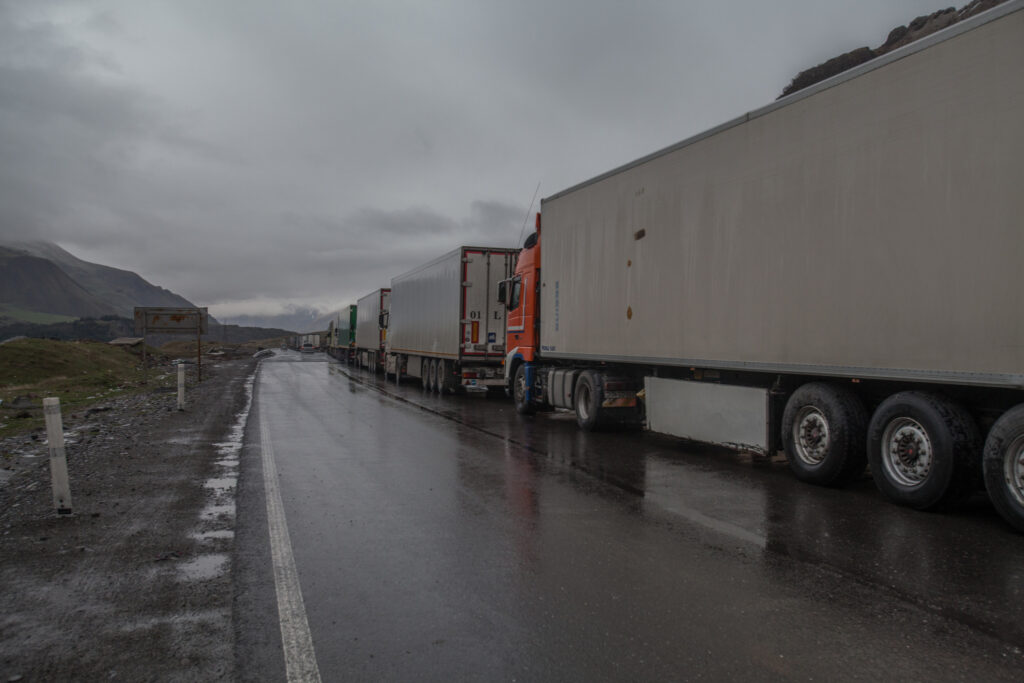ZF joins vehicle and component manufacturers against Russian invasion
A growing number of global automotive, truck and component manufacturers have suspended operations in Russia as the country continues its war against Ukraine.
ZF Group announced March 16 that in the past two weeks it has ceased all deliveries to Russia, including spare parts, even though such components have been excluded from military use since 2014. Meanwhile, it is offering employees in Ukraine paid leave, helping to evacuate their families, bringing support to the Ukrainian border, and opening German ZF offices for refugees.
“ZF condemns the war in Ukraine. Our team expresses its solidarity with the Ukrainian people and the innocent victims of this war. ZF is a company that cherishes peace and rejects aggression and violence. We hope for a peaceful resolution as soon as possible,” the company said in a Twitter post.
It’s was the latest in several trucking-related businesses to add to the economic pressure on Russia.
“Due to the military conflict in Ukraine, the situation in the region and the developing sanctions and export control regulations, the Volvo Group is forced to immediately put all its operations in Russia to a temporary halt and take further measures to comply with applicable regulations,” Volvo spokesman Jan Strandhede told trucknews.com earlier this month.
“Such measures include a temporary halt of all sales, service, and parts distribution activities in Russia as well as a halt of production of trucks in the Kaluga plant effective immediately.”
Russia accounted for 3.2% of Volvo Group’s net sales in 2021, when it delivered 5,700 trucks to customers in the country.

Traton Group, which owns Navistar, has ramped down the production and sale of Scania and MAN Truck & Bus vehicles in Russia until further notice.
“The Traton Group’s values of democracy, free trade, and human rights guide us in being a responsible company. Respect for the individual is never compatible with resorting to violence. This is why we categorically condemn Russia’s invasion of Ukraine,” the OEM said in a March 7 statement.
Scania decided to stop deliveries of trucks and parts to Russia a week earlier, and MAN Truck & Bus stopped shipping trucks and aftermarket components to Russia and Belarus. Navistar itself doesn’t have any activities in the country.
Daimler Truck, meanwhile, announced in late February that it would freeze all business activities in Russia, including its joint venture with Kamaz, a Russian truck manufacturer.
“We are deeply shocked by the military violence in Ukraine and very concerned about the threats to peace and stability in Europe. We clearly stand for peaceful global cooperation and categorically reject any form of military force,” the OEM said in a statement posted on Twitter.
Cummins noted March 3 that it had suspended most operations in Russia, while continuing “select and limited business that supports the health and safety of citizens on the ground where Cummins equipment powers parts of the agricultural sector, hospitals, and other elements of daily life.”
It stressed that it prohibits products from being used in Russian military and defence equipment.
The manufacturer has more than 700 employees in the country.
Cummins says it’s also launched a Ukraine Crisis Relief Fund to support humanitarian assistance in Ukraine and surrounding regions where refugees have fled.
Have your say
This is a moderated forum. Comments will no longer be published unless they are accompanied by a first and last name and a verifiable email address. (Today's Trucking will not publish or share the email address.) Profane language and content deemed to be libelous, racist, or threatening in nature will not be published under any circumstances.
Ukraine is a major supplier of certain components and will slow up production. We need to support Ukraine and offer Russia soldiers a safe spot for a year that want to working manufacturing or construction or the oil rigs or mining in the far north or rail line construction in the north but not as drivers until we fix the treatment of drivers and proper medical care.